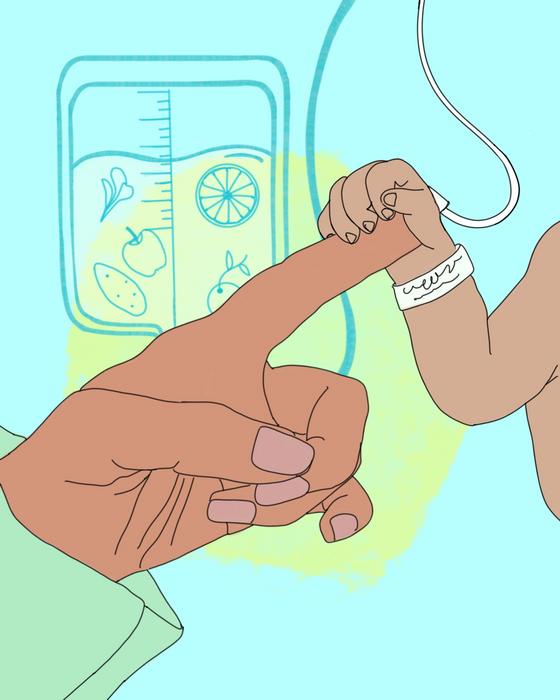
Artificial intelligence (AI) can improve intravenous (IV) nutrition for premature babies, new research has found.
The study is among the first to demonstrate how AI can aid doctors in clinical decisions for sick newborns.
The algorithm analyses preemies’ electronic medical records to predict their nutritional needs.
Trained on nearly 80,000 past IV nutrition prescriptions linked to patient outcomes, it could reduce medical errors, save time and money, and improve care in low-resource settings.
IV nutrition, or total parenteral nutrition (TPN), is essential for preemies whose digestive systems aren’t mature enough to absorb nutrients.
“Right now, we come up with a TPN prescription for each baby, individually, every day. We make it from scratch,” said senior study author Nima Aghaeepour, PhD.
“Total parenteral nutrition is the single largest source of medical error in neonatal intensive care units.”
Doctors struggle to determine if preemies receive the right nutrients.
Unlike full-term babies, they don’t show hunger or satiety cues, and there’s no blood test to measure daily caloric intake.
“Nutrition is one of the areas of neonatal intensive care where we are weakest,” said study coauthor David Stevenson, MD.
“We can’t approximate what the placenta is doing.”
About 10 per cent of babies are born prematurely, and those arriving more than eight weeks early often require IV feeding.
Currently, each prescription is created daily based on factors like weight, development stage, and lab results.
It involves six experts: a neonatologist or pharmacist writes the prescription, a dietitian checks nutrients, a second pharmacist verifies safety, and a compounding pharmacy prepares the formula before nurses administer and double-check it.
“It’s a high-risk drug because it is a mixture of many different things,” said study co-author Shabnam Gaskari, PharmD.
She noted that ready-to-use TPNs would improve safety.
The researchers trained their AI model on 10 years of neonatal intensive care unit data, including 79,790 prescriptions from 5,913 preemies.
The AI identified patterns linking nutrient levels to health outcomes and grouped similar prescriptions, determining that 15 standard IV formulas could meet all patients’ needs.
“What if we make three standard formulas, or 10, or 100?” Aghaeepour said.
“It turns out that with 15 distinct formulas, what you are recommending is pretty similar to what physicians, pharmacists, and dietitians would have done anyway.”
The AI also predicts which formula each baby needs and adjusts recommendations daily as the patient grows.
In a test, 10 neonatologists compared real prescriptions with AI-generated ones—doctors consistently preferred the AI versions.
The researchers validated the model using data from the University of California, San Francisco (63,273 prescriptions from 3,417 patients), confirming its accuracy.
They also found that babies whose prescriptions deviated from AI recommendations had higher risks of mortality, sepsis, and bowel disease.
Next Steps
A clinical trial will compare AI-generated prescriptions to manually created ones.
Doctors and pharmacists will still review recommendations to ensure accuracy.
Standardised AI-driven formulas could make IV nutrition more accessible and affordable, benefiting hospitals in low-resource settings.
“This reflects our hope for AI in medicine,” Stevenson said.
“It will make doctors better and top-notch care more accessible.”
Image: Emily Moskal/Stanford Medicine






